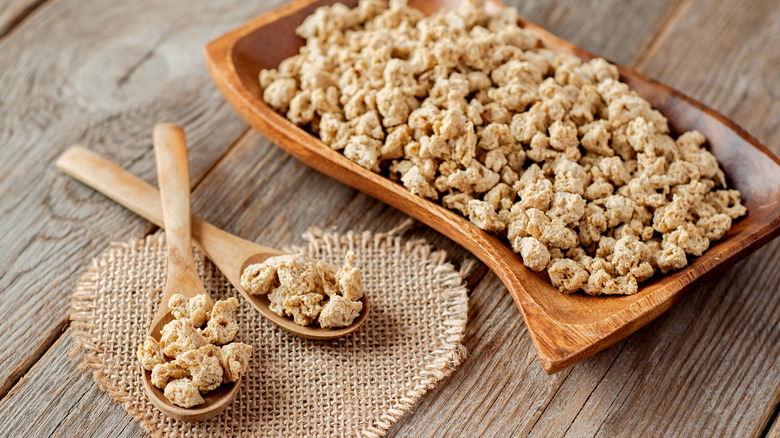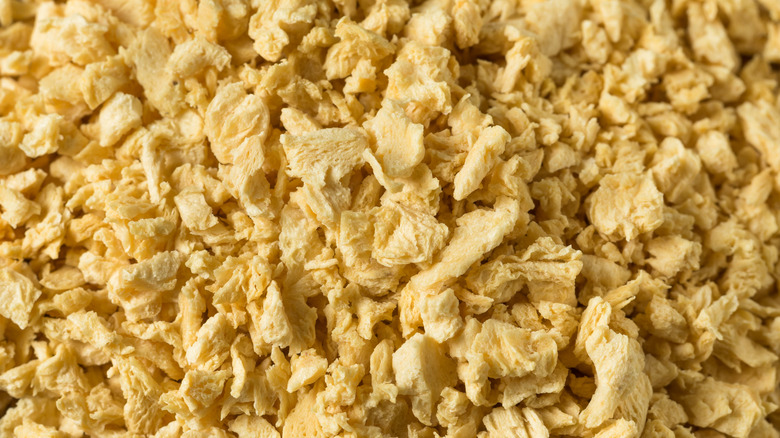The Absolute Best Way To Store Textured Vegetable Protein
It's no surprise that a portion of our greenhouse gas emissions can be traced to agriculture, roughly 11%, according to the USDA. However, using technology to minimize these environmental impacts can offer an immediate solution. To meet our carnivorous demands in a greener way, Bon Appétit reports that many start-ups have offered the solution of plant-based meat, such as textured vegetable protein. With a totally different composition than meat, what's the best way to store this alternative?
Made from defatted soybeans that are cooked under pressure and then dehydrated, Allrecipes explains that textured vegetable protein can be crafted into slices, chunks, strips, or granules to mimic the texture of various types of meat like chicken or ground beef. Also known as textured soy protein, the budget-friendly meat alternative tends to be flavorless, which means it can be added to any recipe.
It's also a nutritional rockstar. Packed with protein and fiber, Healthline outlines that textured vegetable protein is also low in calories but loaded with copper, folate, and magnesium. If you're ready to give the textured vegetable protein a try, here's what you need to know when it comes to storage.
Shelf life depends on whether its rehydrated
Despite the fact that textured vegetable protein can sometimes be available as a ready-to-eat product, Bob's Red Mill claims that it's mostly sold dehydrated, requiring it to be soaked in boiling water or broth before use. That said, when it comes to rehydrated versions, Nutriciously shares that it can be stored in the fridge for about five days — or better yet — it can be frozen, which will extend its shelf life for up to three months.
While it's unlikely to display significant changes in appearance or texture, quality can start to deteriorate beyond this timeframe. Dehydrated textured vegetable protein, on the other hand, can last a very long time. This is especially true when it's left unopened, in a dry and cool place. In fact, FoodSafety.gov states that a sealed package of textured vegetable protein can last up to two years, but only about four months in an airtight container once opened.

